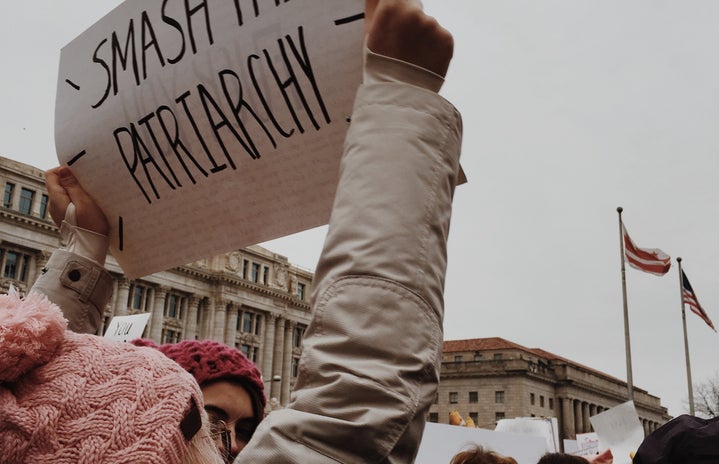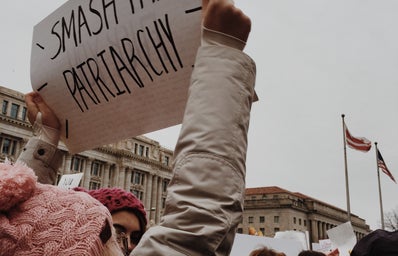As an exchange student in Seoul, South Korea for the past 6 months, the prominence of gender inequality in society has become apparent to me. At the end of 2022, president Yoon Suk – Yeol was constructing plans to abolish the Ministry of Gender Equality and Family. Frankly, this speaks for itself. Yoon claims that systemic “structural discrimination based on gender” is not present in South Korea but, ironically, South Korea experiences one of the greatest gender wage gaps out of the 38 defined high-income countries (OECD statistics). In South Korea’s publicly listed firms, women grasp just 5.8% of executive positions. Furthermore, the rate of sexual harassment crimes against women is cataclysmic with 3.4 cases of sexual crimes being reported every hour. The concerning fact is that the anti-feminist statements made by Yoon were at the forefront of his arguments to win the election with 59% of men in their twenties and 53% of men in their thirties voting for him. This alone is illustrative of the sexism that prevails in South Korean society, especially among the youth.
Why is there gender inequality in South Korea?
Sexism is ingrained within South Korean society, particularly because of the country’s deeply-rooted Confucianist values which emphasizes strict stereotypical gender roles. Men are expected to be the breadwinners whilst women stay at home and pursue household chores. Another factor contributing to gender inequality is the enforced male-only military conscription which has led to a sentiment of resentment towards women and perpetuates patriarchal ideologies. Additionally, women have been subject to military sexual slavery. During World War II and the Korean War, Korean women were forced into military prostitution as it was believed to be their role to provide “feminine” duties whilst men were on the front line. This anti-feminist attitude persists today with 80% of men arguing they are facing gender discrimination.
Why is the department for Gender equality and Family so important today?
The Gender Ministry currently receives 0.2% of the South Korean government’s annual spending and women argue that these funds have greatly impacted their lives. The Ministry aided victims of hidden spy cameras (Molka), an epidemic in South Korea. Hidden cameras, targeted mainly at women, are installed in public restrooms, changing rooms and motels, where film footage is then uploaded onto the internet for paid access. More than 30,000 cases have been reported in the last decade. In 2019, prosecutors dismissed 43.5% of these sexual digital crimes and only 5% of prosecutors were imprisoned. The Gender Ministry introduced a 700 million won (£439,000) fund for the victims of hidden cameras and other forms of digital sexual harassment. This fund contributes to locating and removing exploitative websites. In addition to this, the Ministry supports neglected victims of sexual assault and stalking, women who have been fired after getting pregnant and helps single mothers receive more generous child support payments. These strategies and extra funds could be at risk if the Ministry is abolished and these issues are subsequently absorbed by other departments.
Since Yoon announced his plans, there has been a domino effect of policies further depriving women of security. For example, Seoul is in the process of eradicating women-only parking spaces, which were introduced over a decade ago as protection for women against violent car park crimes. Could Yoon’s plans to abolish the Gender Ministry be propelling a trend of sexism?
Retaliation
Yoon faces intense criticism of his plans by the opposing liberal democratic party. They state that these actions are regressing women’s rights in South Korea and undermining South Korea’s recent positive steps. For instance, the recent decriminalization of abortion (2021) or the #MeToo movement that broadcasted the issues of harassment and discrimination in workforces across Korea.
Women in Korea and internationally are retaliating to Yoon’s threat via protests. Moreover, 133 global civil society organizations and gender scholars’ signatures have been accumulated for a petition berating Yoon’s actions. He claims that abolishing the Gender Ministry will improve rights as he alludes to claims that staff within the Ministry have been incompetent. However, experts argue that the abolishment of the Gender Ministry would be detrimental and intensify gender inequality.
Although Yoon’s actions suggest a decline in equality, recent events in South Korea provide hope for change and demonstrate the potential efficacy of protesting. For example, last month was the first time a South Korean court had ever recognized any right for same-sex couples. In addition, feminist organizations that were founded within the last decade, such as “Flaming Feminist Action” are growing in membership numbers.
Whilst Yoon’s plans exist, one can hope that such retaliation can combat his actions or help prevent further gender-discriminatory behavior.


